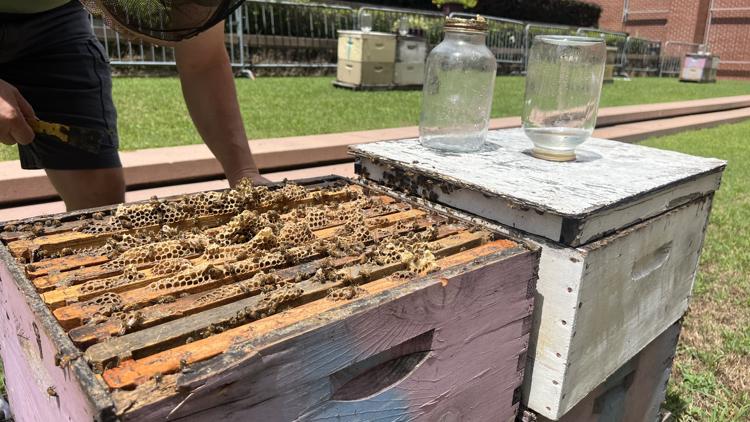Celebrating 50 Years of Beekeeping in South Carolina
Beekeepers from all over South Carolina came together in Columbia on Friday to celebrate the 50th anniversary of their statewide association. The event not only marked a milestone in the history of beekeeping in the state but also served as a platform for addressing the increasing challenges that threaten the vital pollinators that support the region’s agriculture.
Hundreds of beekeepers attended the South Carolina Beekeepers Association’s semiannual conference, where they had the opportunity to learn about the latest developments in beekeeping, network with fellow enthusiasts, and purchase supplies related to their craft. Bees play a crucial role in pollinating many of the state’s key crops, such as peaches, collard greens, and other vegetables. Without these essential insects, farmers would need to rely on alternative methods to ensure their crops are pollinated, which can be both time-consuming and costly.
As one of the nation’s leading agricultural states, South Carolina has a strong interest in protecting its pollinators. Jim Strohm, president of the Beekeepers Association, shared some practical steps that individuals can take to support bees in their own communities.
Tolong support kita ya,
Cukup klik ini aja: https://indonesiacrowd.com/support-bonus/
“Minimize the use of pesticides,” Strohm advised. “Let a few weeds grow in your yard—dandelions are perfectly fine for bees.” He also recommended planting certain flowers that are beneficial to pollinators, such as salvia, bee balm, sunflowers, and clover. According to Gardener’s Outpost, native flowering perennials are also excellent choices for supporting local bee populations.
Strohm noted that while hobbyist beekeepers are currently doing well, commercial beekeepers are facing some difficulties. “There have been a lot of losses, but primarily it’s migratory beekeepers who are struggling,” he explained. “Now, commercial beekeepers are encountering problems because they transport bees across the country.”
The conference included a live bee yard outside, where visitors could observe multiple hives up close. Officials explained that each hive is self-contained, with bees typically staying inside to protect their queen. A single hive can house up to 60,000 bees, highlighting the complex and organized nature of bee colonies.
One emerging threat that beekeepers in Georgia and eastern South Carolina are now dealing with is the yellow-legged hornet. These invasive predators pose a serious risk to honeybee populations, as they can destroy entire colonies. Brad Cavin, the state honeybee inspector, is working to identify and manage these pests before they become a larger issue.
Cavin encourages beekeepers to report any sightings of yellow-legged hornets. “We ask that people don’t attempt to remove the nests on their own,” he said. “Instead, contact us so we can safely remove the nest and the queen, helping to control the spread of this invasive species.”
Tips for Supporting Bees in Your Community
- Reduce pesticide use to create a safer environment for bees.
- Allow some weeds to grow in your yard, as they provide valuable food sources.
- Plant pollinator-friendly flowers like salvia, bee balm, sunflowers, and clover.
- Choose native flowering plants that are well-suited to your local climate.
- Report sightings of invasive species like the yellow-legged hornet to local authorities.
By taking these steps, individuals can contribute to the health and survival of South Carolina’s important pollinators, ensuring that they continue to support the state’s agricultural industry for generations to come.







